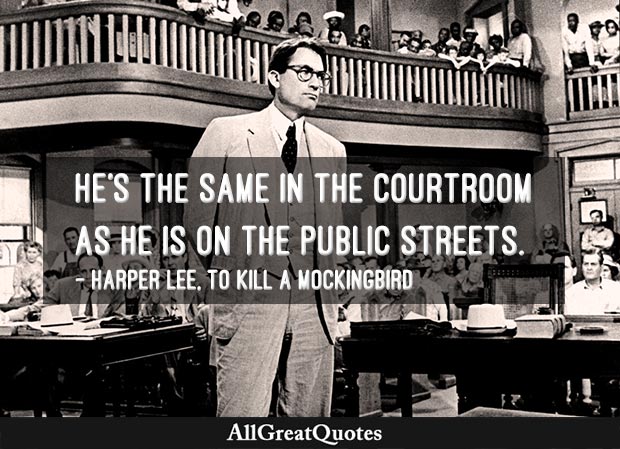A boy trudged down the sidewalk dragging a fishing pole behind him. A man stood waiting with his hands on his hips. Summertime, and his children played in the front yard with their friend, enacting a strange little drama of their own invention. It was fall, and his children fought on the sidewalk in front of Mrs. Dubose’s…Fall, and his children trotted to and fro around the corner, the day’s woes and triumphs on their faces. They stopped at an oak tree, delighted, puzzled, apprehensive. Winter, and his children shivered at the front gate, silhouetted against a blazing house. Winter, and a man walked into the street, dropped his glasses, and shot a dog. Summer, and he watched his children’s heart break. Autumn again, and Boo’s children needed him. Atticus was right. One time he said you never really know a man until you stand in his shoes and walk around in them. Just standing on the Radley porch was enough.
– Harper Lee
To Kill a Mockingbird, Chapter 31. Scout thinks about the world from Boo Radley’s perspective, following her father’s advice to stand and walk in another person’s shoes. After she walks him home, Scout stands on Boo’s porch and imagines many of the events of the story as they must have looked to Boo. She at last realizes the love and protection that he has silently offered her and Jem all along. She sees him not as an evil monster but a guardian angel.

